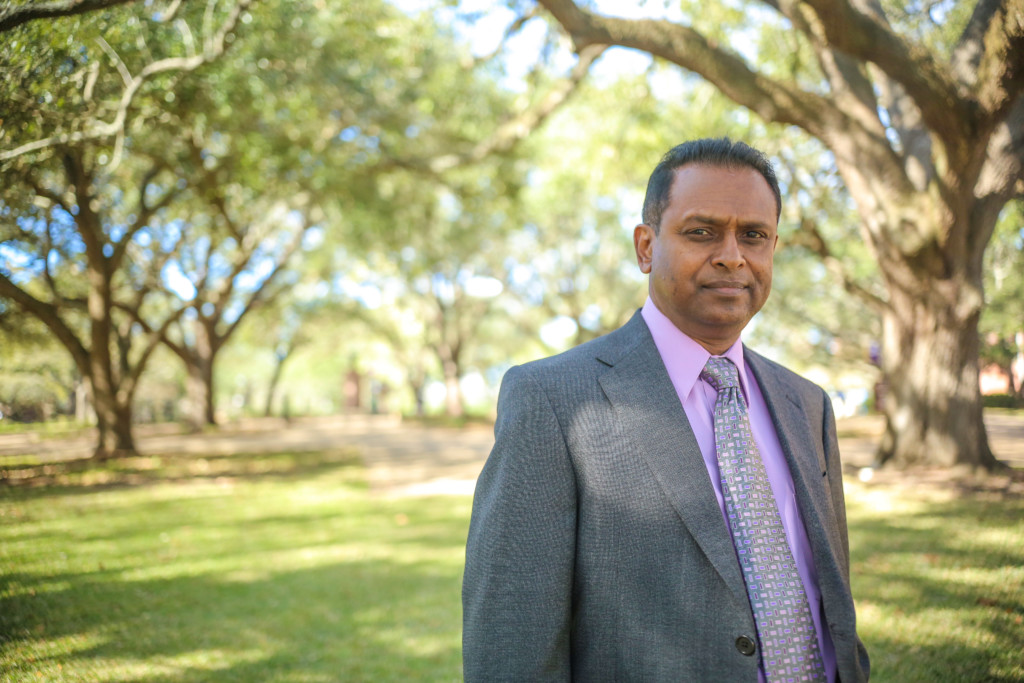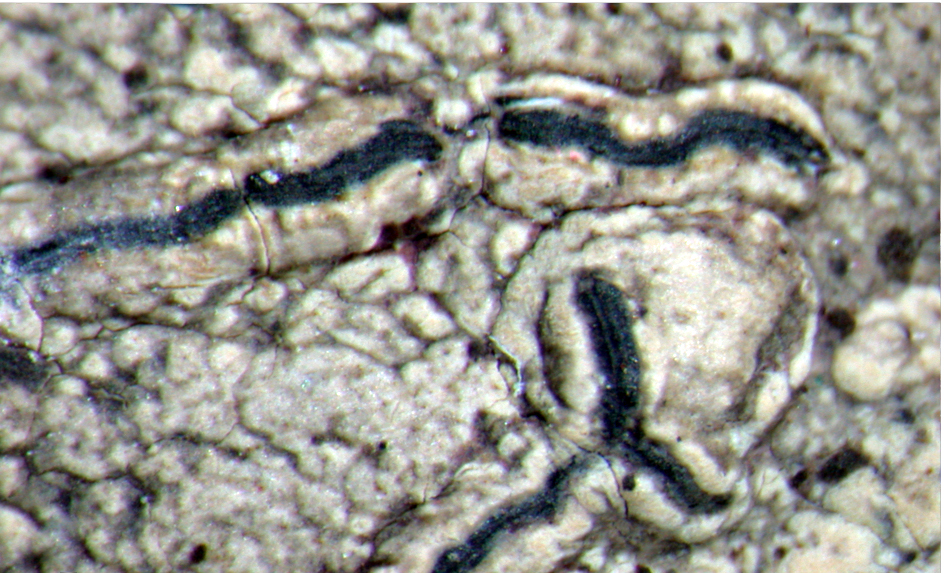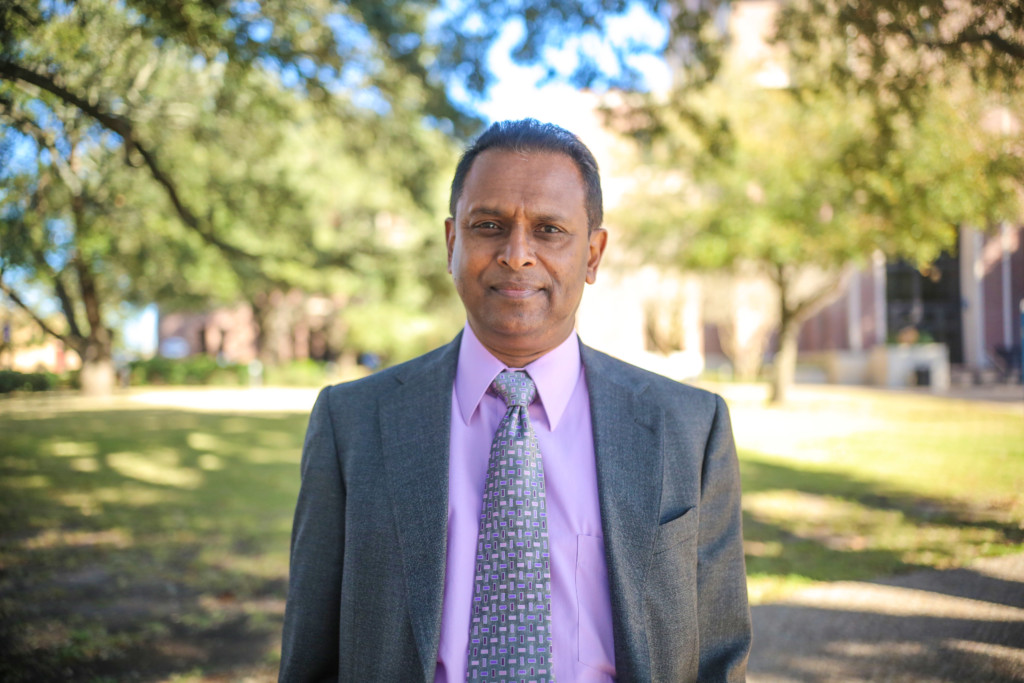PRAIRIE VIEW, Texas (February 12, 2020) – It’s not every day someone can claim to have a species named after him or her. But someone who can is Aruna D. Weerasooriya, Ph.D., associate professor and research leader in plant systems at Prairie View A&M University’s College of Agriculture and Human Sciences (CAHS). A group of scientists at the British Museum in London discovered a new lichen species from Sri Lanka, the country where Weerasooriya was born and raised, and named it after him. This is the first time a faculty member at PVAMU has been given such an honor.
The discovery of the species appears in the latest issue of the journal “The Lichenologist,” published by Cambridge University Press.
“It was named after me in honor of my contribution to the botanical research in the Asian region,” Weerasooriya said. “[This] is a universal recognition, and it will remain forever.”
When a new species is discovered, it needs a scientific name. Scientists use what’s called the Binomial Naming System, a two-name system that describes the genus and species of the organism. The new lichen named after Weerasooriya belongs to the genus Allographa and is called Allographa weerasooriyana.
Weerasooriya says a lichen is not a single organism; rather, it’s a symbiosis between different organisms, such as a fungus and an alga or blue-green algae. So far, the species is only found in Sri Lanka. Global lichen explorations are continuing, and there is a possibility it may be found in other countries.
“[They are a] very poorly studied group of organisms,” said Weerasooriya. “They have been used in making dyes, perfumes, and in traditional medicines. A few lichen species are eaten by insects or larger animals, such as reindeer. They are also widely used as environmental indicators or bio-indicators to understand the pollution level of natural habitats.”
Weerasooriya has been involved in the botanical exploration, identification, and documentation of plants in Sri Lanka, India, Burma, Andaman Islands, Thailand, Vietnam, Laos, Cambodia, China, Malaysia, and Indonesia, during which he discovered 26 new plant species. The Thai government also honored him by having a postage stamp issued of a new plant species he discovered from that country.
“The fact that the university was able to recruit and retain someone of Dr. Weerasooriya’s caliber, and to simultaneously recognize his value including at the highest levels of the institution, is a testament to and validation of the university’s efforts to elevate our research footprint,” said Gerard D’Souza, Ph.D., CAHS dean and director of land grant programs. “Not many scientists have the honor of a plant species named after them; the number who have both a named plant species and a postage stamp bestowed on them puts Dr. Weerasooriya in truly rarified company.”
Weerasooriya joined PVAMU’s faculty in 2013. His current research focuses on medicinal plants and their uses and investigating their bioactive compounds to use in various applications. He and his team are also planning to develop a research and academic program on industrial hemp.
“Dr. Weerasooriya has been a game-changer for our research program,” said Alfred Parks, Ph.D., executive associate research director of the Cooperative Agricultural Research Center (CARC) and professor of agricultural economics. “Since his arrival here, our research efforts and support in the area of medicinal plants, in general, has grown by leaps and bounds. His work has elevated our status in the research community, which is bringing more and more support for his – and our – work at PVAMU. I’m excited for Dr. Weerasooriya in particular, but at the same time, I’m excited about what this is doing for our research program.”
Magesh Rajan, Ph.D., vice president of PVAMU’s Office of Research, Innovation, and Sponsored Programs, said, “This significant international recognition is an example of impactful discoveries and scholarly research work carried out by PVAMU researchers. We continue to invest in elevating PVAMU research and innovation for a greater impact on society and to make our lives better. Dr. Weerasooriya’s research in botanical sciences is commendable and evidenced through his recent initiatives on agricultural innovations. With PVAMU being one of the only two land grant universities in the state of Texas, there is a great potential for the Agriculture and Human Sciences researchers to continue to elevate the research and innovation enterprise.”
“I need to continue encouraging our students to find careers in scientific research,” said Weerasooriya. “We need future generations of scientists to continue similar global explorations of living organisms, to identify and document them before they disappear from the earth.”
###
By Holly Beretto



